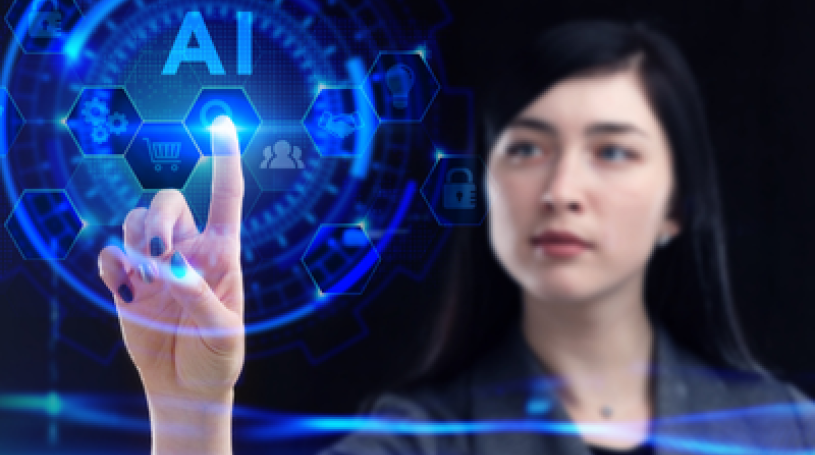The Artificial Intelligence (AI) Effect on Business
Artificial Intelligence (AI) has become a transformative force in day-to-day business operations and is revolutionizing how tasks are accomplished. Through automation and intelligent algorithms, AI streamlines repetitive tasks, allowing employees to focus on higher-value activities.
THE HISTORY AND DEVELOPMENT OF AI TECHNOLOGIES
The history of AI dates back to the mid-20th century when pioneers such as Alan Turing and John McCarthy laid the groundwork for its development. However, it wasn’t until the 1950s and 1960s that considerable progress was made in the creation of the first AI programs capable of solving simple problems.
In the 21st century, AI experienced exponential growth. Data proliferation, fueled by information digitalization and the Internet, provided AI systems with vast amounts of data to learn from and make informed decisions on to tackle complex tasks with accuracy and efficiency. In business, AI is deployed across marketing, finance, operations, and customer service as an integral part of the daily routine.
AI development continues to accelerate, with cutting-edge technologies such as deep learning, neural networks and reinforcement learning pushing the boundaries. And as AI becomes more sophisticated and pervasive, it presents both opportunities and challenges, with concerns about privacy, ethics, job displacement, and algorithmic bias.
AI’S EFFECT ON COMPANIES
AI is transforming how companies across various industries operate, innovate, and compete. Here are some of the ways it is influencing business operations:
ENHANCED OPERATIONAL EFFICIENCY
AI-powered automation streamlines repetitive tasks, reducing manual effort and human error while accelerating workflows. This allows employees to focus on higher-value activities that require creativity, critical thinking, and strategic decision making, ultimately driving efficiency gains and cost savings.
CUSTOMER INTERACTIONS AND ENGAGEMENT
Through chatbots, virtual assistants, and personalized recommendation systems, AI can extract valuable insights, uncover patterns, and forecast future trends, enabling companies to anticipate market changes, identify opportunities, and mitigate risks. These data-driven insights inform strategic planning, resource allocation, and business strategy, helping companies stay agile and competitive.
INNOVATION
AI enables companies to drive innovation and create new revenue streams by developing AI-powered products, services, and solutions. From AI-driven software applications to smart devices and autonomous systems, companies can develop innovative offerings that address unmet customer needs, solve complex problems, and differentiate themselves in the market.
AI’S EFFECT ON EMPLOYEES
AI impacts employees by reshaping the nature of their work. Here are some of the ways AI is aiding employees:
AUTOMATION OF REPETITIVE TASKS
Through AI automation, employees can delegate repetitive and routine tasks to machines, allowing them to focus on more creative and strategic aspects of their jobs. This not only increases productivity, it enhances job satisfaction by enabling employees to engage in more intellectually stimulating and fulfilling tasks.
SKILLS AUGMENTATION
AI empowers employees by augmenting their capabilities and skills through intelligent tools and systems. Employees can have access to real-time data, predictive insights, and decision support. In addition, AI-driven collaboration tools facilitate communication, knowledge sharing, and teamwork, regardless of geographical location or time zones.
PROFESSIONAL DEVELOPMENT
By providing personalized training and skill-building experiences, AI-powered learning management systems (LMS) analyze employee performance, preferences, and learning styles to deliver tailored learning content, recommendations, and assessment. This enables employees to acquire new skills, stay current with industry trends, and advance their careers at their own pace.
HOW COMPANIES CAN USE AI TO THEIR ADVANTAGE
There are numerous ways AI technologies can be advantageous for company use:
RESEARCH AND STRATEGY
AI is capable of analyzing vast amounts of data, identify patterns, and generate actionable insights. AI-powered data analytics tools can process structured and unstructured data from various sources, including internal databases, market research reports, social media, and customer feedback. By applying these algorithms and predictive modeling techniques, companies can uncover trends, forecast market dynamics, and identify opportunities or threats.
COMPETITOR ANALYSIS
AI-powered web scraping and text mining tools gather and analyze information from competitor websites, news articles, press releases, and social media mentions. Natural language processing (NLP) algorithms can extract key insights such as product features, pricing strategies, customer reviews, and market positioning to help companies gain a deeper understanding of their competitors’ strengths, weaknesses, and market strategies.
OPTIMIZED WORK DESIGN
Workforce analytics can analyze employee data such as performance metrics, skills, preferences, and engagement levels to identify patterns and trends related to work habits, collaboration dynamics, and job satisfaction. This enables companies to tailor work design and job roles to better match employees’ strengths, preferences, and career aspirations, thereby increasing engagement, retention, and productivity.
The Association for Enterprise Growth Helps Business Owners Navigate the Changes Brought About by AI
At the Association for Enterprise Growth (AEG), we are watching the evolution of AI as it happens, and anticipate that significant ethical, regulatory, and technological issues will come to the forefront. As AI develops, so does our knowledge and understanding. Our next blog will dig deeper into the impacts on jobs, so stay tuned!

